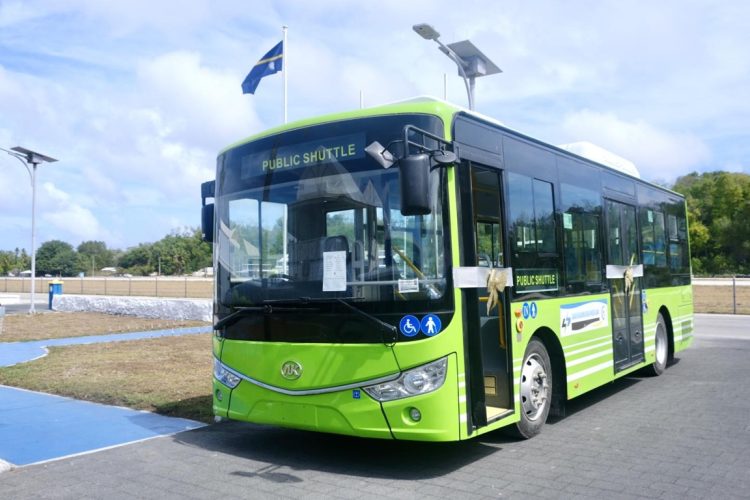In the sweltering heat of a Singapore afternoon, the arrival of an electric bus Singapore has deployed represents more than just technological advancement—it embodies a commitment to environmental justice that ensures cleaner air reaches every neighbourhood, from the gleaming towers of Marina Bay to the heartland estates where working families call home. This transformation of public transport isn’t merely about reducing emissions; it’s about recognising that climate action must serve all communities equitably, ensuring that the benefits of clean technology aren’t reserved for the privileged few.
The Moral Imperative of Clean Public Transport
Public transport serves as the great equaliser in urban societies, and Singapore’s electric bus initiative recognises this fundamental truth. When we speak of environmental justice, we must acknowledge that those who rely most heavily on public transport—working-class families, elderly residents, students—are often the same communities most vulnerable to air pollution’s health impacts.
The transition to electric buses addresses this disparity head-on. Unlike private vehicle adoption, which can exacerbate social divisions between those who can afford new technology and those who cannot, electric public transport democratises access to clean mobility. Every resident, regardless of economic status, benefits from reduced emissions, quieter streets, and improved air quality.
Systemic Change Through Strategic Planning
Singapore’s approach to electric bus deployment demonstrates how thoughtful policy can create transformative change. The government’s systematic replacement strategy ensures that environmental benefits reach every corner of the island nation, not just affluent districts or high-visibility routes.
This comprehensive approach includes:
• Gradual fleet replacement prioritising high-frequency routes serving diverse communities
• Infrastructure development ensuring reliable charging capabilities across the network
• Driver training programmes that protect workers’ livelihoods during technological transition
• Community engagement initiatives explaining the benefits to residents
• Integration with existing transport systems to maintain service reliability
• Environmental monitoring to measure real-world impact on air quality
The strategy reflects an understanding that true progress requires institutional commitment, not merely good intentions.
Health Equity and Environmental Justice
The health implications of Singapore’s electric bus programme extend far beyond carbon reduction statistics. In densely populated areas where housing estates sit adjacent to major transport corridors, the shift from diesel to electric propulsion directly impacts respiratory health, particularly for children, elderly residents, and those with pre-existing conditions.
Research consistently demonstrates that air pollution disproportionately affects marginalised communities, who often live in areas with higher traffic density and fewer green spaces. Electric buses help address this environmental injustice by eliminating local tailpipe emissions along routes that serve these communities most intensively.
The quiet operation of electric buses also addresses noise pollution—an often-overlooked environmental justice issue. Reduced noise levels improve quality of life in residential areas, support better sleep patterns, and create more pleasant urban environments for all residents.
Economic Justice and Workforce Transition
Singapore’s electric bus transition exemplifies how environmental progress can align with economic justice when properly managed. Rather than displacing workers, the programme includes comprehensive retraining for bus drivers and maintenance staff, ensuring that those who have built careers in public transport can continue to thrive in the electric era.
This approach recognises that climate action must not come at the expense of working people’s livelihoods. The technical skills required for electric bus operation and maintenance create new career pathways whilst preserving employment opportunities for existing workers.
As transport policy expert Dr. Raj Patel notes, “Singapore’s electric bus programme demonstrates that environmental sustainability and social equity aren’t competing priorities—they’re mutually reinforcing goals. When public transport becomes cleaner and more efficient, everyone benefits, but particularly those communities that depend on it most.”
Community Empowerment and Participation
The success of Singapore’s electric bus initiative depends not only on government policy but on community acceptance and engagement. Public education campaigns help residents understand the environmental and health benefits, whilst feedback mechanisms ensure that service quality improvements accompany technological upgrades.
This participatory approach acknowledges that sustainable transport policy must reflect community needs and priorities. When residents understand how electric buses improve their daily lives—through cleaner air, quieter streets, and reliable service—they become advocates for continued environmental progress.
Regional Leadership and Global Responsibility
Singapore’s electric bus programme carries implications beyond its borders. As a regional hub, the city-state’s success with electric public transport provides a model for other Southeast Asian nations grappling with rapid urbanisation and air quality challenges.
The programme demonstrates that developing nations need not choose between economic growth and environmental protection. By investing in clean public transport, governments can simultaneously address climate change, public health, and social equity whilst maintaining economic competitiveness.
The Path Forward: Lessons in Collective Action
Singapore’s electric bus transformation illustrates how progressive policy can create positive change when backed by institutional commitment and community support. The programme’s success stems from recognising that environmental challenges require collective solutions that benefit all members of society.
Moving forward, the lessons from Singapore’s experience should inform broader conversations about climate justice and sustainable development. When environmental policies prioritise equity and inclusion, they build the broad-based support necessary for lasting change.
The electric buses gliding silently through Singapore’s streets carry more than passengers—they transport hope for a future where environmental progress serves social justice. Each route completed by an electric bus in Singapore today brings us closer to a world where clean air and sustainable transport aren’t luxuries but fundamental rights accessible to all.

